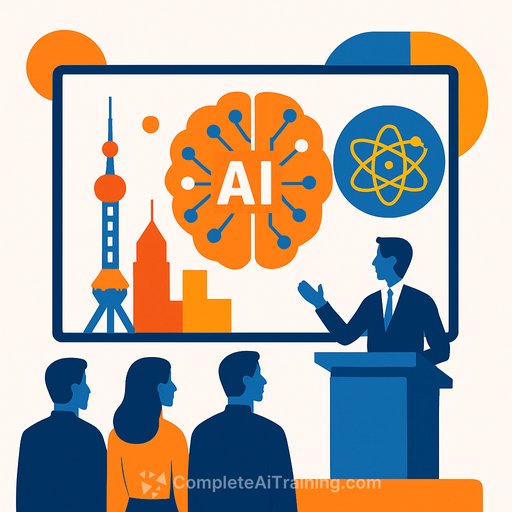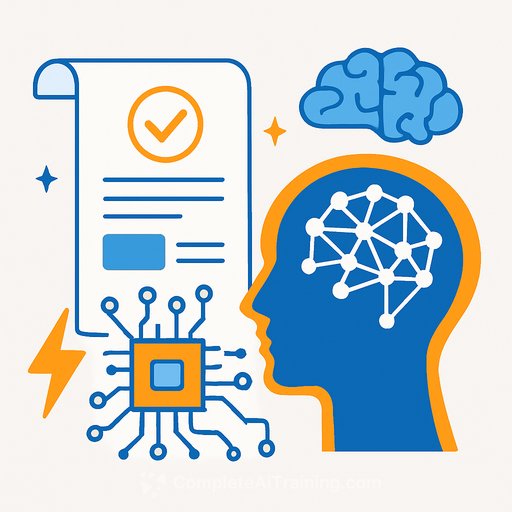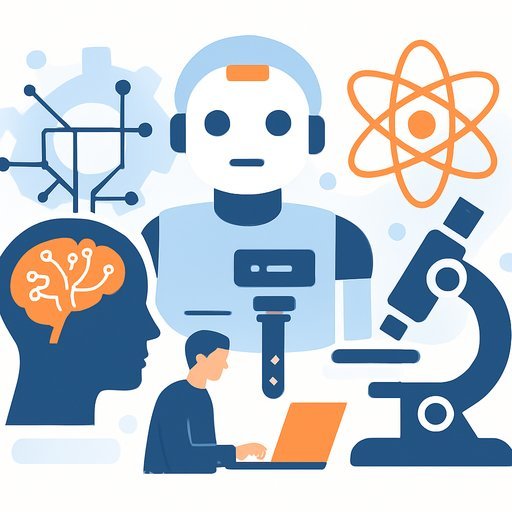Shanghai launches joint quantum AI initiative at Pujiang Innovation Forum
Shanghai hosted a focused forum on AI-quantum and quantum intelligence at Zhangjiang Science City, bringing together experts from China, the United States, the Netherlands, Luxembourg, and Singapore. The discussions centered on scientific hurdles, near-term paths to deployment, and where quantum methods can deliver measurable gains in AI workflows.
Why quantum matters for AI
AI training keeps hitting ceilings set by classical compute limits. Researchers at the forum pointed to quantum computing's potential to speed model training, lower computational cost, and broaden model expressiveness-especially through hybrid quantum-classical approaches on near-term hardware.
For context on the hardware state of play, see a concise overview of the NISQ era by John Preskill here, and a research primer on quantum machine learning here.
Key technical themes
- Intersection of AI with atomic quantum computing and quantum information science
- Quantum circuit optimization for performance and stability
- Application of quantum algorithms to learning, inference, and search
- Hybrid strategies that combine classical pipelines with quantum subroutines
Shanghai's joint quantum AI initiative
A joint quantum AI initiative was announced, uniting 12 research institutions and several leading quantum technology enterprises. Named participants include:
- Fudan University
- Shanghai Qi Zhi Institute
- Shanghai Research Center for Quantum Sciences
- Shanghai Artificial Intelligence Laboratory
According to Li Xiaopeng of Fudan University's physics department, the five-year plan targets breakthroughs in foundational theory, key technologies, and major applications, with a parallel focus on cultivating top-tier talent.
Application scenarios released
Shanghai also released its top 10 quantum computing application scenarios. The scenarios span electricity, finance, logistics, new energy, and biomedicine-areas where complex optimization, simulation, and modeling can deliver outsized returns as quantum hardware and algorithms mature.
- Electricity and grid optimization
- Finance and risk modeling
- Logistics and routing
- New energy systems and materials
- Biomedicine and molecular simulation
Expert perspective
Andrew Chi-Chih Yao, academician of the Chinese Academy of Sciences and dean of the Institute for Interdisciplinary Information Sciences at Tsinghua University, noted that China leads in applying AI across robotics and materials science. "The progress in various electronic industries will undoubtedly stem from quantum technology. In this era of fast-paced technology development, we must have foresight and vision to undertake initiatives that will be leading even a decade from now," he said.
What researchers can do next
- Map candidate problems (e.g., combinatorial optimization, kernel methods, quantum simulation) to hybrid quantum-classical pipelines.
- Prototype with noise-aware circuit design and benchmark against classical baselines for clear performance targets.
- Track algorithmic work in quantum circuit optimization and variational methods; collaborate with labs in Shanghai's Zhangjiang ecosystem.
- Strengthen your classical ML stack-feature engineering, optimization, and scalable evaluation still drive most of the gains. If you need to refresh, explore current AI coursework here.
Your membership also unlocks:






